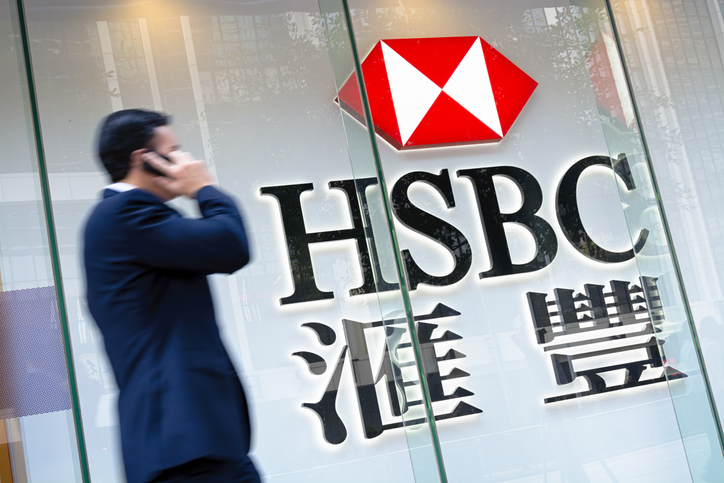ii view: HSBC bad debt provisions rise fourfold
Covid-19 is now impeding efforts to restructure this banking goliath.
28th April 2020 12:07
by Keith Bowman from interactive investor
Covid-19 is now impeding efforts to restructure this banking goliath.

First-quarter results to 31 March 2020
- Reported revenue down 5% to $13.69 billion (£10.95 billion)
- Pre-tax profit down 48% to $3.2 billion (£2.56 billion)
- Bad debt provision or impairments up 413% since Q4 to $3 billion (£2.4 billion)
- Previously announced - no dividend payment
Chief executive Noel Quinn said:
"The economic impact of the Covid-19 pandemic on our customers has been the main driver of the change in our financial performance since the turn of the year. The resultant increase in expected credit losses in the first quarter contributed to a material fall in reported profit before tax compared with the same period last year.
"HSBC has always been there for our customers in times of crisis, and we are working hard to support them during this unprecedented period of disruption. We do so from a position of strength, with robust levels of capital, funding and liquidity.
"I take the well-being of our people extremely seriously. We have therefore paused the vast majority of redundancies related to the transformation we announced in February to reduce the uncertainty they are facing at this difficult time.
ii round-up:
Founded in 1865 in Hong Kong and now headquartered in London, HSBC (LSE:HSBA) serves more than 40 million customers worldwide.
It employs more than 230,000 staff in over 60 countries and supports around 1.4 million businesses.
With assets of over $2900 billion, HSBC is one of the world’s largest banking and financial services companies.
Services include both retail and commercial banking, global banking and markets, and wealth management.
For a round-up of these first-quarter results, please click here.
ii view:
Having entered and emerged from the financial crisis in better shape than many of its competitors, HSBC has more recently been undertaking a degree of catch-up. While its core Asian operations remain profitable, businesses elsewhere, which rivals may have either sold or already restructured more severely, have been dragging hard on performance. Both Europe and North America generated losses in this first quarter.
Now, Covid-19 is compounding HSBC’s challenges. Impairment provisions largely relating to the virus have risen significantly, while its planned restructuring is now more difficult to achieve. Targeted job losses have been postponed in order to reduce staff uncertainty.
For investors, recent changes in the chief executive, while not helpful in terms of strategic continuity, do underline the board’s determination and impatience to grow the bank. Cost reduction remains a core focus. Operating expenses fell by 5% over this latest quarter, while its capital buffer was extended. But with the dividend payment abandoned given regulatory pressures, and other rivals having already refocused their operations, there appears no rush to snap up HSBC shares.
Positives:
- A focus on Asian growth prospects
- Targeting restructuring and cost cutting
Negatives:
- Both Europe and North America generated Q1 losses
- Dividend attraction removed due to regulatory pressures
The average rating of stock market analysts:
Sell
These articles are provided for information purposes only. Occasionally, an opinion about whether to buy or sell a specific investment may be provided by third parties. The content is not intended to be a personal recommendation to buy or sell any financial instrument or product, or to adopt any investment strategy as it is not provided based on an assessment of your investing knowledge and experience, your financial situation or your investment objectives. The value of your investments, and the income derived from them, may go down as well as up. You may not get back all the money that you invest. The investments referred to in this article may not be suitable for all investors, and if in doubt, an investor should seek advice from a qualified investment adviser.
Full performance can be found on the company or index summary page on the interactive investor website. Simply click on the company's or index name highlighted in the article.